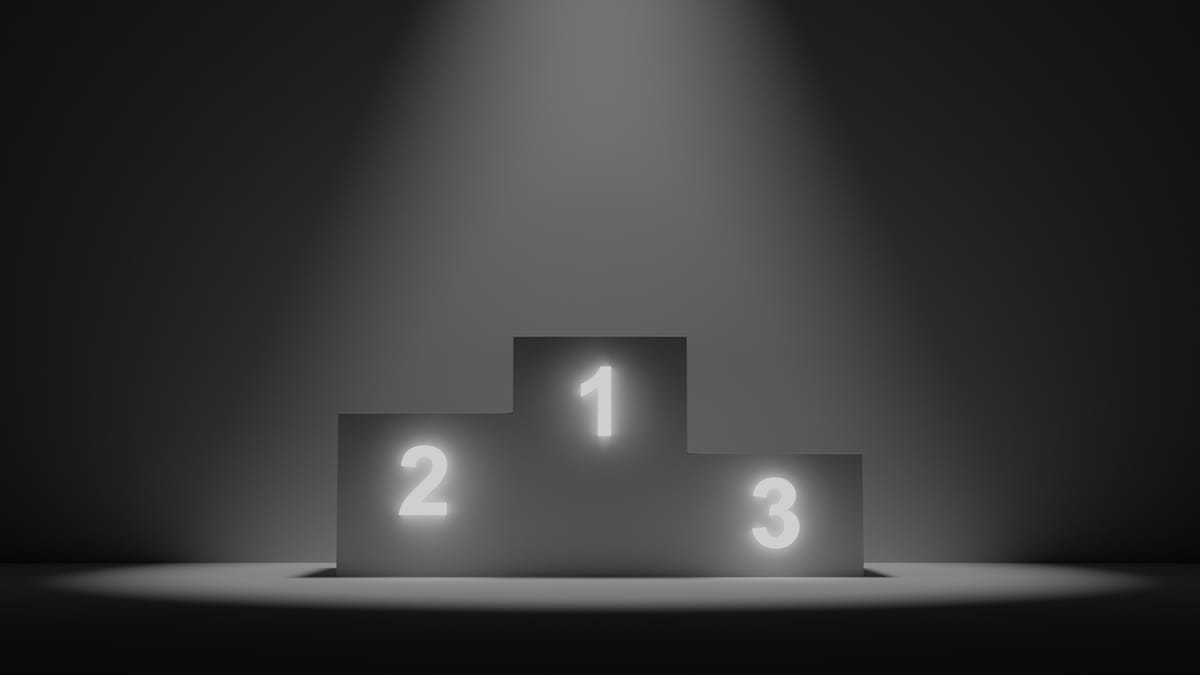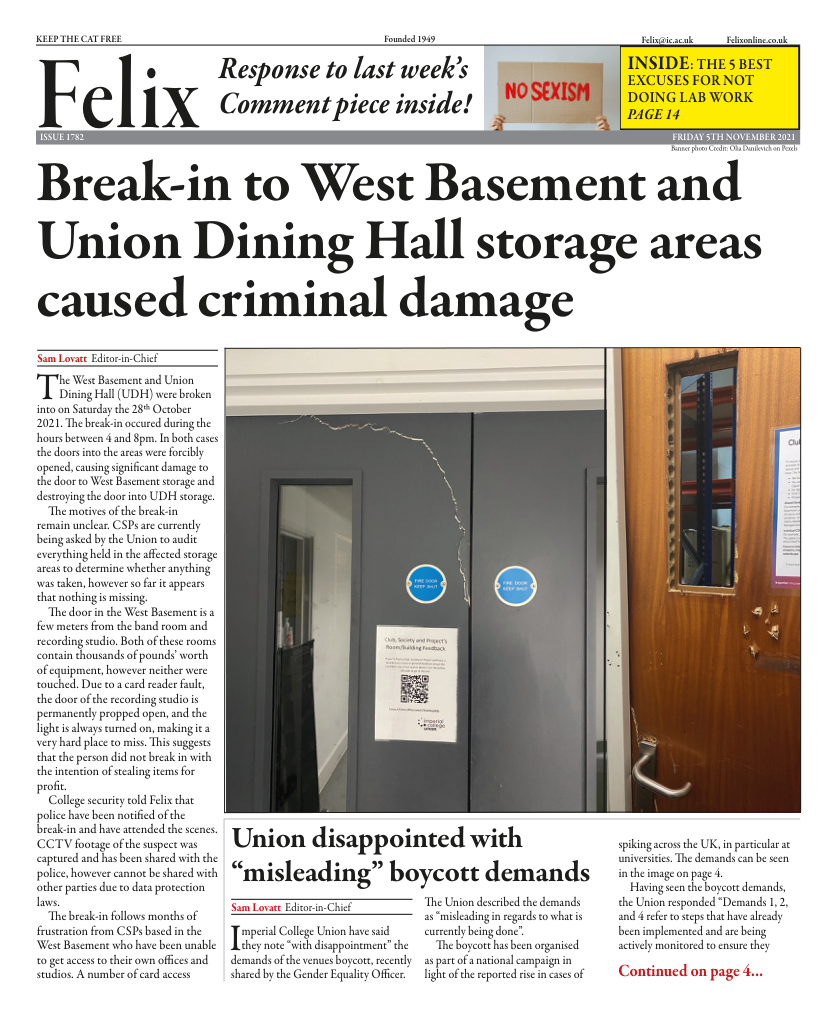There is No Dollar Sign on a Piece of Mind
A Reflection on the Ranking System

No Ranking Anymore. For many, Imperial’s way of approaching scores is unprecedented and gratifying—unlike universities such as the University of California, Berkeley, where there is a horrifying fixed “grade ratio” that successfully changes some students’ lives into hell, scores in Imperial are determined not by the ranking, and everyone is possible to get the first-class degree. It means that, from now on, we can study in our own way, pursuing our own academic interests, and be ourselves instead of being forced to compete and regard friends as potential “rivals”. However, privately, I do hear some complaints. “How can they know I’m not only good but excellent if I’m without a ranking?” Typically, for students used to the glory of “No.1 in class”, this could be a big problem. Back then, it was easy for every student (including the No.1) to say who is the best in one classroom thanks to the ranking. But now, well, things have changed. You might never know who studies better, the one drunk in the bar every night or the one who sleeps in the library.
The ban on ranking puts students hoping to achieve a high academic standard somehow at a disadvantage. The difference between your extreme hard work and your peer’s relatively relaxed schedule may not reflect on the scores, and the feeling of your academic superiority may no longer exist. When assessed by external sources, say a company or a graduate school admission team, those students’ academic excellence may also not be very distinguishable. As a result, this ban can potentially run the risk of discouraging students to work hard to become “phenomenal achievers” and lower the quality of the university’s graduates.
On the other side, the ranking system is indeed a massive stimulus to students’ academic performance. This is evident in the results of the 2018 Programme for International Student Assessment (PISA) (the PISA is one of the world’s largest cross-national tests for reading, math, science and other key skills) which placed countries, such as South Korea and China (only Beijing, Shanghai, Jiangsu and Zhejiang participated) where students face enormous study pressure and competition, ahead of highly developed countries like Sweden, Norway, USA, and the UK. In many Asian countries where the so-called “helicopter parents” predominate, students are required to achieve a certain ranking, say top 5% in a grade of 360 students, in order to convince their parents that they are doing well in their studies. Having a good score is simply far from enough.
True greatness is not always reflected in scores
It may well prompt people to advocate for countries worldwide to adopt the so-called “exam-oriented” education system to level up academic performance. However, they ignore the downsides underlying the benefits. To approach this issue, we need to answer the question: what’s the purpose of education? And why do you choose to have the education?
High scores are required for many things—good high schools, good universities, well-paid jobs, a prosperous future, and may even contribute to a future happy family. The score can reflect abilities in the academic field, mental agility, and many more things, but it fails to demonstrate people’s interest and passion both in academic fields and beyond. True greatness is not always reflected in scores, and it holds true that a person has talents in some fields but not in others. Churchill, for example, failed to do well in school exams. Suppose that his talents in literature and military were not recognised simply because he couldn’t pass the school exams, Britain would probably have lost one of the most prominent prime ministers in history.
The ranking is something like a dollar sign stuck to the back of every student. Theoretically, the ranking only reflects the score. But in the perception of many teachers, parents, and students, it equals the value of students themselves. Who is the best in class? Who is better than who? With the ranking system, everyone has the answer. It hugely impacts students’ self-awareness and potentially causes talents to be abandoned in pursuit of scores.

But still, isn’t it that the ranking system can steer up the competition, which in turn helps the academic performance? The problem does not come from the ranking system itself, but what the ranking system is based on—score. Score is a good way to demonstrate ability, but it’s not the aim of studying. However, for students aiming at high ranks, their pursuits can gradually be narrowed only to the improvement of scores instead of their life-long goals or academic breakthroughs. A few days ago, one of my high school friends from a prominent Chinese university, where all the students’ rankings in each exam are publicised (with only some degree of anonymity), told me a similar story. All the students in the university are selected from the top students at each high school, and everyone thought that they should continue to be at the top. But as you might have expected, there came huge disappointment after the first exam. Then, what some students did after the exam was to study much harder to beat other students. Of course, their supposed “opponents” did the same in turn. Each student wanted to be better than the rest, and as a result, everybody started to devote all their time in the library, reading textbooks and doing previous examination papers. The professor was quite uncomfortable in the next exam because everyone’s score seemed good, and there was not much difference between them. However, according to the university’s rule, students should be rated according to their ranking. Therefore, in the third exam, what greeted students were significantly harder problems than the previous exam. And this cycle started all over again.
When everything is about competition, who cares about the original purpose of studying?
It seems that Imperial is on the right track to not to publicise rankings. However, there are things to keep in mind. Apart from scores, there should be more awards, scholarships, research, and internship opportunities to satisfy the students aiming to become phenomenal achievers. Complaints arise because these opportunities are still greatly limited. And this system also requires professors to cautiously balance the coursework and students’ spare time to ensure proper study pressure is assigned to each student.
There is no dollar sign on a piece of mind. But the value of people varies. Regardless of which education system we are in, it’s essential to keep in mind what our goals are and what we value the most. Different people have different goals, and there is no standard to evaluate who is better than others. The most valuable people are those who follow their hearts and benefit the world.









